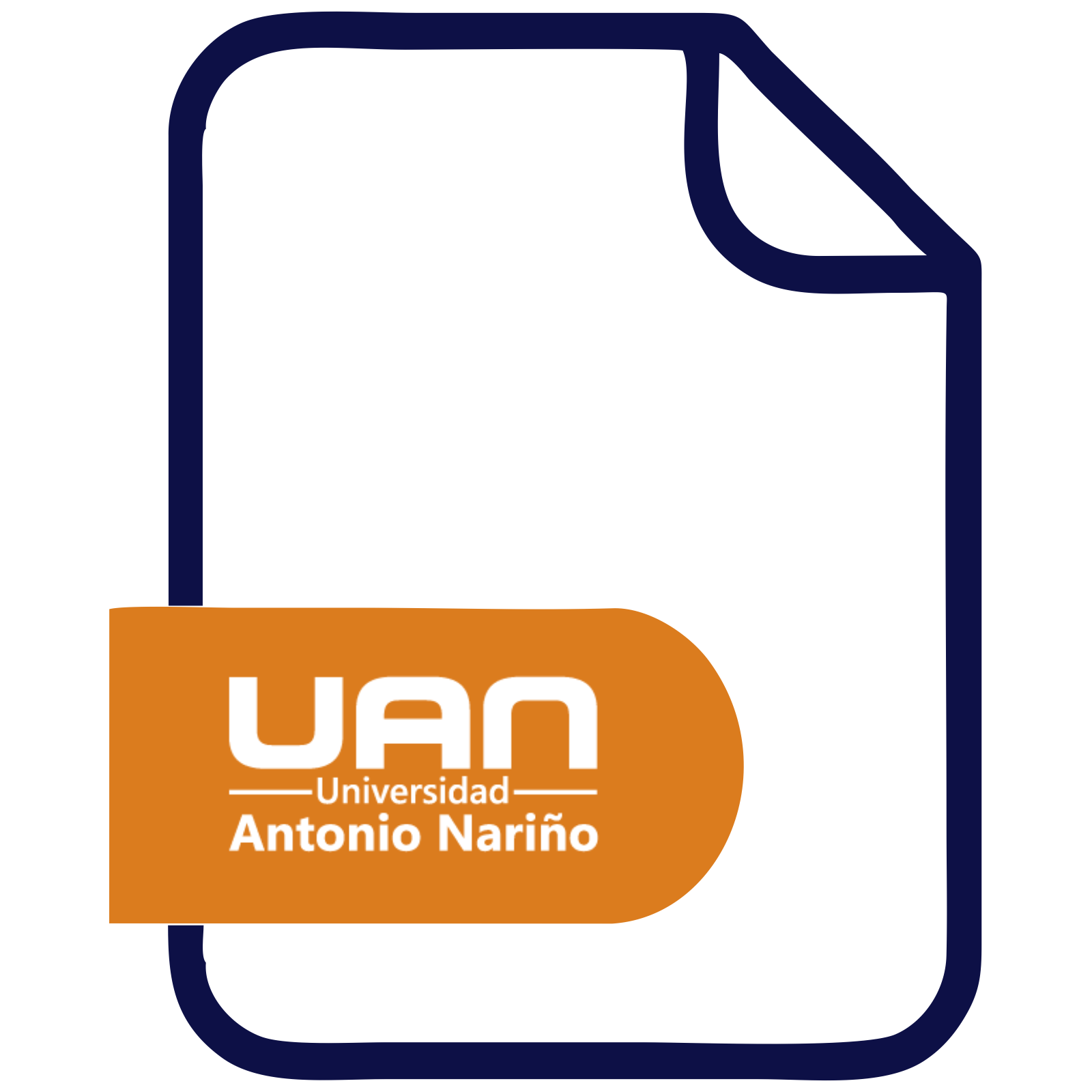Por favor, use este identificador para citar o enlazar este ítem:
http://repositorio.uan.edu.co/handle/123456789/6372> Repositorio UAN
Repositorio UANComunidades y ColeccionesTitulosMateriasAutoresFecha de publicacion
Mi CuentaAccederRegistro
Mi CuentaAccederRegistro
| Título : | Evaluación del efecto del péptido sintético Pb53A derivado de toxinas de la araña Phoneutria boliviensis sobre la viabilidad celular de la línea HEK293 |
| metadata.dc.creator: | Bermúdez Urrego, Yair Santiago |
| metadata.dc.contributor.advisor: | Forero Vivas, María Elisa Reyes Guzmán, Edwin Alfredo |
| Palabras clave : | Citotoxicidad;MTT;péptido;viabilidad celular;espectrofotometría;ELISA |
| Resumen : | Cerebral ischemia is caused by the obstruction of a blood vessel in the brain and is generated by a hypoxic depolarization resulting from the influx and elevation of intracellular free calcium from the extracellular space and the endoplasmic reticulum. This excessive influx of calcium into hypoxic cells induces the activation of apoptotic processes that kill neuronal activity. The use of peptide toxins of animal origin is of great importance in modulating the activity of the NMDA receptor, which is associated with the excitotoxic phenomenon resulting from the increase in intracellular calcium concentration; an example is the Phoneutria boliviensis peptide toxins that show high homology with Phoneutria nigriventer peptide toxins that interact with the GluN2B subunit of the NMDA receptor. In this document we present the study of the cytotoxic effect that these peptides exert on the adherent eukaryotic cell line HEK-293, by means of the assay of the metabolic reduction of 3- (4,5-dimethylthiazol-2-yl) -2,5- bromide diphenyltetrazolium (MTT), as a preliminary assay for the evaluation of this peptide in the regulation of NMDAR receptor activity. The results obtained allow us to suggest that the peptide tested (Pb53a) does not have a significant effect on the decrease in cell viability of the HEK-293 line in a concentration range from 1 µM to 500 µM and therefore it can be used in assays of the functional evaluation of the NMDA receptor. |
| metadata.dc.description.tableofcontents: | La isquemia cerebral es causada por la obstrucción de un vaso sanguíneo en el cerebro y se ve generada por una despolarización hipóxica resultado del influjo y elevación de calcio libre intracelular proveniente del espacio extracelular y del retículo endoplasmático. Este influjo excesivo de calcio hacia las células en hipoxia induce la activación de procesos apoptóticos que acaban con la actividad neuronal. El uso de toxinas peptídicas de origen animal reviste gran importancia en la modulación de la actividad del receptor NMDA, el cual se encuentra asociado con el fenómeno excitotóxico producto del aumento de la concentración de calcio intracelular; un ejemplo son las toxinas peptídicas de Phoneutria boliviensis que presentan gran homología con toxinas peptídicas de Phoneutria nigriventer que interactúan con la subunidad GluN2B del receptor NMDA. En este documento presentamos el estudio del efecto citotóxico que ejercen dichos péptidos sobre la línea celular eucariótica adherente HEK-293, por medio del ensayo de la reducción metabólica del Bromuro de 3-(4,5- dimetiltiazol-2-ilo)-2,5-difeniltetrazolio (MTT), como un ensayo preliminar para la evaluación de este péptido en la regulación de la actividad del receptor NMDA. Los resultados obtenidos permiten sugerir que el péptido ensayado (Pb53a) no tiene un efecto significativo sobre la disminución de la viabilidad celular de la línea HEK-293 en un rango de concentraciones desde 1 µM hasta 500 µM y por tanto se puede usar en ensayos de la evaluación funcional del receptor NMDA. |
| URI : | http://repositorio.uan.edu.co/handle/123456789/6372 |
| Editorial : | Universidad Antonio Nariño |
| metadata.dc.publisher.campus: | Bogotá - Circunvalar |
| metadata.dc.publisher.faculty: | Facultad de Ciencias |
| metadata.dc.date.created: | 2021-06-01 |
| metadata.dc.rights.uri: | http://creativecommons.org/licenses/by-nc-nd/3.0/us/ |
| Aparece en las colecciones: | Bioquímica |
Ficheros en este ítem:
| Fichero | Tamaño | |
|---|---|---|
| 2021_YairSantiagoBermudezUrrego_Acta.pdf Restricted Access | 876.09 kB | Visualizar/Abrir Request a copy |
| 2021_YairSantiagoBermudezUrrego_Autorizacion.pdf Restricted Access | 98.82 kB | Visualizar/Abrir Request a copy |
| 2021_YairSantiagoBermudezUrrego.pdf | 390.43 kB | Visualizar/Abrir |
Este ítem está sujeto a una licencia Creative Commons Licencia Creative Commons




